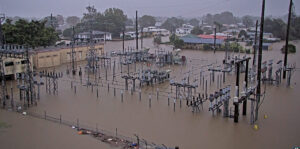What nobody wants to say about the carbon tax package
Over the past 12 months, the political debate over whether the carbon price is a tax or an emissions trading scheme has been as brutal as it has been boring. Rather than explain the details of what is, in fact, a hybrid scheme, the government, opposition and media have instead busied themselves in the politics of broken promises, minority government and the inherent conflict between the need to compromise and the need to stand on principle. In a couple of years, when the political hysteria dies down, it will be necessary to analyse the actual policy that has been passed in order to either (depending on your faith in science and economics) make it better or tear it down. And when that day comes, most people will probably be quite surprised at what they find. Put politely, the clean energy future package contains a surprising number of contradictory mechanisms and objectives which, in time, will need to be streamlined and reconciled. Before detailing seven of its major contradictions, it is important to state at the outset that, while the government’s package has a number of deficiencies, it is better to have a price on pollution than not. The measures that have been established should be seen as a starting point and, irrespective of who wins the next election, they will evolve through time. Our interest in identifying these contradictions is not to suggest that the clean energy future package is not worth having; merely that it will need an overhaul if it is to be cost-effective.
Related documents
Between the Lines Newsletter
The biggest stories and the best analysis from the team at the Australia Institute, delivered to your inbox every fortnight.
You might also like
Why a fossil fuel-free COP could put Australia’s bid over the edge
When the medical world hosts a conference on quitting smoking, they don’t invite Phillip Morris, or British American Tobacco along to help “be part of the solution”.
Dutton’s nuclear push will cost renewable jobs
Dutton’s nuclear push will cost renewable jobs As Australia’s federal election campaign has finally begun, opposition leader Peter Dutton’s proposal to spend hundreds of billions in public money to build seven nuclear power plants across the country has been carefully scrutinized. The technological unfeasibility, staggering cost, and scant detail of the Coalition’s nuclear proposal have
Climate crisis escalates cost-of-living pressures
A new report has found direct connections between the climate crisis and rising cost-of-living pressures. Failure to lower emissions now will only aggravate the crisis, with each moment of inaction compounding the pressure on households.




